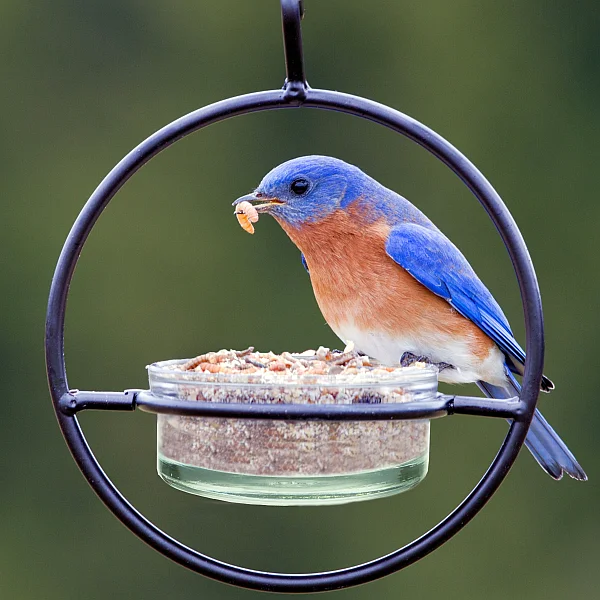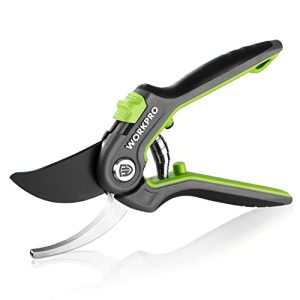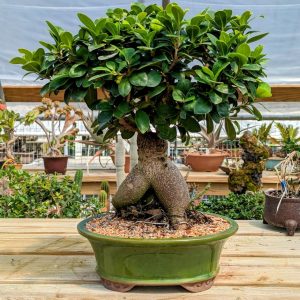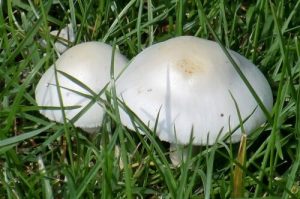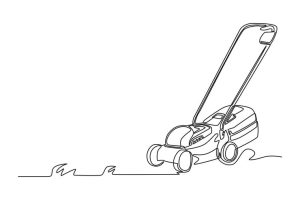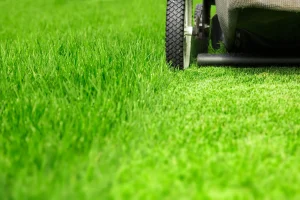Have you ever watched a bluebird flutter through your garden and wondered what you could do to make them stay a little longer? These vibrant birds are not just a joy to watch; they’re a symbol of happiness and hope.
But attracting and keeping them around requires more than just a beautiful garden. It’s all about providing the right food. Understanding what to feed bluebirds can transform your backyard into a bustling haven for these charming creatures. Are you ready to discover the secrets to making your garden irresistible to bluebirds?
Keep reading to learn how you can create a bluebird buffet that will have them coming back for more.
Natural Diet Of Blue Birds
Blue birds, with their vibrant plumage, captivate bird watchers. Understanding their natural diet is vital for their health. They thrive on a diverse array of foods found in the wild. This section explores their diet, emphasizing what sustains them naturally.
Insects And Spiders
Blue birds feast on insects and spiders. They hunt beetles, caterpillars, and grasshoppers. Spiders are a favorite, providing essential nutrients. These creatures are abundant in their natural habitat. They offer protein and energy for active days.
Wild fruits and berries entice blue birds. They love serviceberries, elderberries, and mulberries. Fruits are rich in vitamins and antioxidants. They boost the birds’ immune system. These natural sweets complement their insect diet.
Seeds
Seeds also play a role in their diet. Blue birds consume sunflower seeds and corn. Seeds provide necessary fats and proteins. They help in sustaining energy levels. Blue birds find seeds in fields and gardens.
Plant Material
Blue birds nibble on plant material occasionally. They eat leaves and small flowers. This adds fiber to their diet. It aids in digestion and overall health. Plants are readily available in their environment.

Importance Of Proper Nutrition
Bluebirds are charming creatures that bring joy to many gardens. Providing them with proper nutrition is essential for their health and vitality. A well-balanced diet ensures they thrive, reproduce, and maintain vibrant plumage. Understanding their dietary needs contributes significantly to their overall well-being.
Variety In Diet
Bluebirds enjoy a diverse diet. They feed on insects, fruits, and seeds. Insects like beetles, caterpillars, and grasshoppers are favorites. These provide essential proteins and nutrients. Fruits like berries offer vitamins and antioxidants. A varied diet keeps bluebirds healthy and energetic.
Protein Sources
Protein is vital for bluebirds. It supports growth and energy. Mealworms and crickets are excellent protein sources. Offering these ensures strong muscles and active behavior. During breeding season, protein becomes even more important.
Essential Vitamins And Minerals
Vitamins and minerals are crucial for bluebird health. Calcium is important for eggshell strength. Fruits and berries provide essential vitamins. These nutrients boost immunity and enhance feather quality. A well-rounded diet prevents deficiencies and promotes longevity.
Hydration Needs
Bluebirds require fresh water daily. Hydration supports digestion and overall health. Water sources should be clean and accessible. Providing a birdbath encourages regular drinking. Adequate hydration is as important as a balanced diet.
Insects And Protein Sources
Blue birds are delightful creatures that thrive on a diet rich in protein. Insects and protein sources are crucial for their growth and energy. Providing the right type of food helps maintain their health and vibrant plumage. This section explores the best insects and supplemental protein options for blue birds.
Best Insects For Blue Birds
Mealworms are a favorite choice. They are rich in protein and easy to digest. Blue birds enjoy them, especially during breeding season. Caterpillars also provide essential nutrients. Their soft bodies make them easy for birds to eat. Crickets can be a nutritious option, too. They offer a good balance of protein and vitamins. Ants are small but packed with energy. They are often found naturally in bird habitats.
Supplemental Protein Options
Peanut hearts offer extra protein. They can be mixed with other bird seeds. Suet cakes are another excellent choice. They are made of animal fat and grains. These cakes provide energy for blue birds. Hard-boiled eggs can be mashed and served. They are a versatile protein source. Cooked chicken pieces are rich in proteins. They should be offered in small amounts.

Fruits And Berries
Feeding blue birds can be a delightful experience. Fruits and berries are essential for their diet. These vibrant creatures thrive on natural sources of nourishment. Offering seasonal fruits and safe berries attracts them to your garden.
Seasonal Fruits
Blue birds enjoy a variety of seasonal fruits. Apples are a favorite in the fall. They provide energy and nutrients. Cherries are perfect for the summer. Fresh and juicy, they entice birds with their sweetness. Peaches can be offered during late summer. Their soft flesh is easy for birds to digest.
Safe Berries For Blue Birds
Berries are a crucial part of a blue bird’s diet. Offer blueberries. They are nutritious and safe for blue birds. Strawberries are another excellent choice. Their vibrant color and taste attract birds. Blackberries can be given in moderation. Ensure they are ripe and free from pesticides.
Seeds And Grains
Bluebirds are delightful creatures, often gracing gardens with their colorful presence. Feeding them correctly ensures their health and frequent visits. Seeds and grains play a crucial role in a balanced diet for bluebirds. Offering a variety of nutritious seeds and grains can attract these birds and keep them healthy.
Nutritious Seed Types
Sunflower seeds are a favorite among bluebirds. They provide essential nutrients and energy. Offer hulled sunflower seeds for easier consumption. Millet is another popular choice, packed with protein and fiber. Bluebirds enjoy its small, easy-to-eat shape. Safflower seeds are also beneficial. They are rich in oils and support healthy feathers.
Grains To Include In Diet
Oats offer a nutritious option for bluebirds. They are full of fiber and minerals. Whole oats are best, providing the most nutrients. Cracked corn can be another option. It is easy for bluebirds to eat and digest. Quinoa is a super grain that supports overall health. It is high in protein and essential amino acids.
Water And Hydration
Water plays a crucial role in the diet of bluebirds. These vibrant birds need hydration to stay healthy and active. Providing them with clean, fresh water encourages their visits and supports their wellbeing. Let’s explore how to ensure bluebirds have access to the water they need.
Providing Clean Water
Bluebirds need a reliable source of clean water. Birdbaths are an excellent choice. Place the birdbath at ground level or on a pedestal. Ensure it’s shallow, about 1-2 inches deep. Change the water daily to keep it fresh and clean. Stagnant water can harbor bacteria and parasites. Use a gentle scrub to clean the birdbath weekly. This simple routine keeps bluebirds coming back for a refreshing drink.
Hydration Needs
Bluebirds, like all birds, have specific hydration needs. They drink water to digest food and regulate body temperature. In hot weather, they need more water to stay cool. During breeding season, hydration is vital for their energy and health. Providing clean water ensures they meet their hydration needs. It also supports their overall health and vitality.
Feeding Practices
Feeding bluebirds can be a delightful activity. It requires some knowledge of their preferences. Bluebirds need specific foods and feeding practices. These practices ensure they stay healthy and return to your garden. Learn how to set up feeders and create a feeding schedule. This will attract these vibrant birds to your backyard.
Setting Up Feeders
Choose a feeder designed for bluebirds. These feeders protect food from larger birds. Place feeders in open spaces. Bluebirds prefer open areas over dense foliage. Hang feeders at eye level for easy access. Ensure the feeder is clean and sturdy. This prevents mold and keeps food fresh.
Feeding Schedule Tips
Feed bluebirds early in the morning. They are active during this time. Offer food daily to keep them returning. Observe their feeding patterns. Adjust the amount based on their visits. During cold months, increase food supply. This helps them maintain energy in winter.
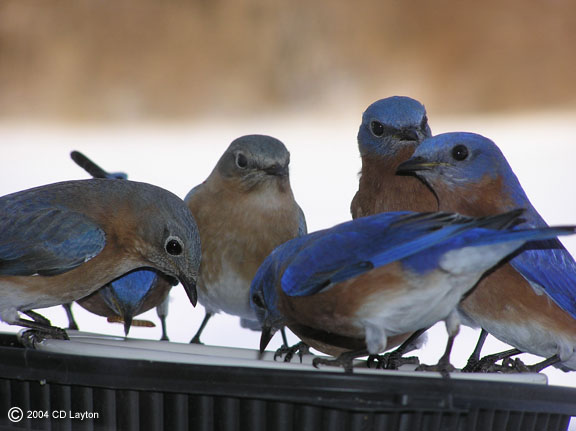
Common Feeding Mistakes
Feeding bluebirds involves avoiding common mistakes like offering bread or dairy. These foods can harm their digestive system. Opt for mealworms, berries, and seeds to keep them healthy.
Feeding bluebirds can be a delightful activity. Watching these vibrant creatures enjoy a meal is heartwarming. Yet, many bird lovers make simple mistakes while feeding them. These can affect the health of these delicate birds. Understanding these mistakes is crucial for their well-being.Avoiding Junk Food
Bluebirds need nutritious food to thrive. Many people offer bread or crackers, thinking it’s harmless. These foods lack necessary nutrients. They can lead to health issues for the birds. It’s essential to avoid these options. Instead, offer mealworms or berries. These provide the protein and vitamins bluebirds need.Understanding Overfeeding
Overfeeding can harm bluebirds. Some feeders are filled to the brim. This might seem generous, but it’s not ideal. Too much food can attract predators. It can also lead to food spoilage. Birds can become dependent on feeders, losing their natural hunting instincts. Offer just enough for a day. This keeps the food fresh and encourages natural foraging.Frequently Asked Questions
What Is The Best Thing To Feed Bluebirds?
Feed bluebirds mealworms, both live and dried, for optimal nutrition. Offer fruits like raisins and berries. Use sunflower seeds, suet, and nut pieces. Provide a variety of foods to attract and nourish them. Ensure fresh water is available for drinking and bathing.
Do Bluebirds Need A Special Feeder?
Bluebirds benefit from specialized feeders that cater to their diet. Mealworm feeders are ideal for attracting them. These feeders protect food from larger birds, ensuring bluebirds can access it. Choose feeders with small openings to accommodate their size. This helps maintain a healthy bluebird population in your area.
What Does It Mean When Bluebirds Hang Around Your House?
Bluebirds near your house symbolize happiness, good fortune, and positive energy. They often represent hope, renewal, and new beginnings. Many people consider their presence a sign of a harmonious and peaceful environment. Observing these birds can bring joy and a sense of connection to nature.
Do Bluebirds Eat Dried Fruit?
Yes, bluebirds eat dried fruit. They enjoy raisins, currants, and other dried berries. These fruits provide essential nutrients and energy. Offering dried fruit in your backyard can attract bluebirds. Ensure the fruit is unsweetened and free from additives. Always provide fresh water alongside the dried fruit for optimal health.
Conclusion
Feeding bluebirds is simple and rewarding. Offer mealworms, suet, and berries. These foods provide essential nutrients. Ensure fresh water is always available. A birdbath can attract more visitors. Avoid bread and processed foods. They lack nutrients and harm birds. Use a proper feeder to keep food safe.
Clean it regularly to prevent disease. Plant native shrubs and trees for natural food sources. These attract insects and offer shelter. Enjoy watching these beautiful birds thrive. Your yard will become a lively, colorful sanctuary. Bluebirds bring joy and natural beauty to your space.

